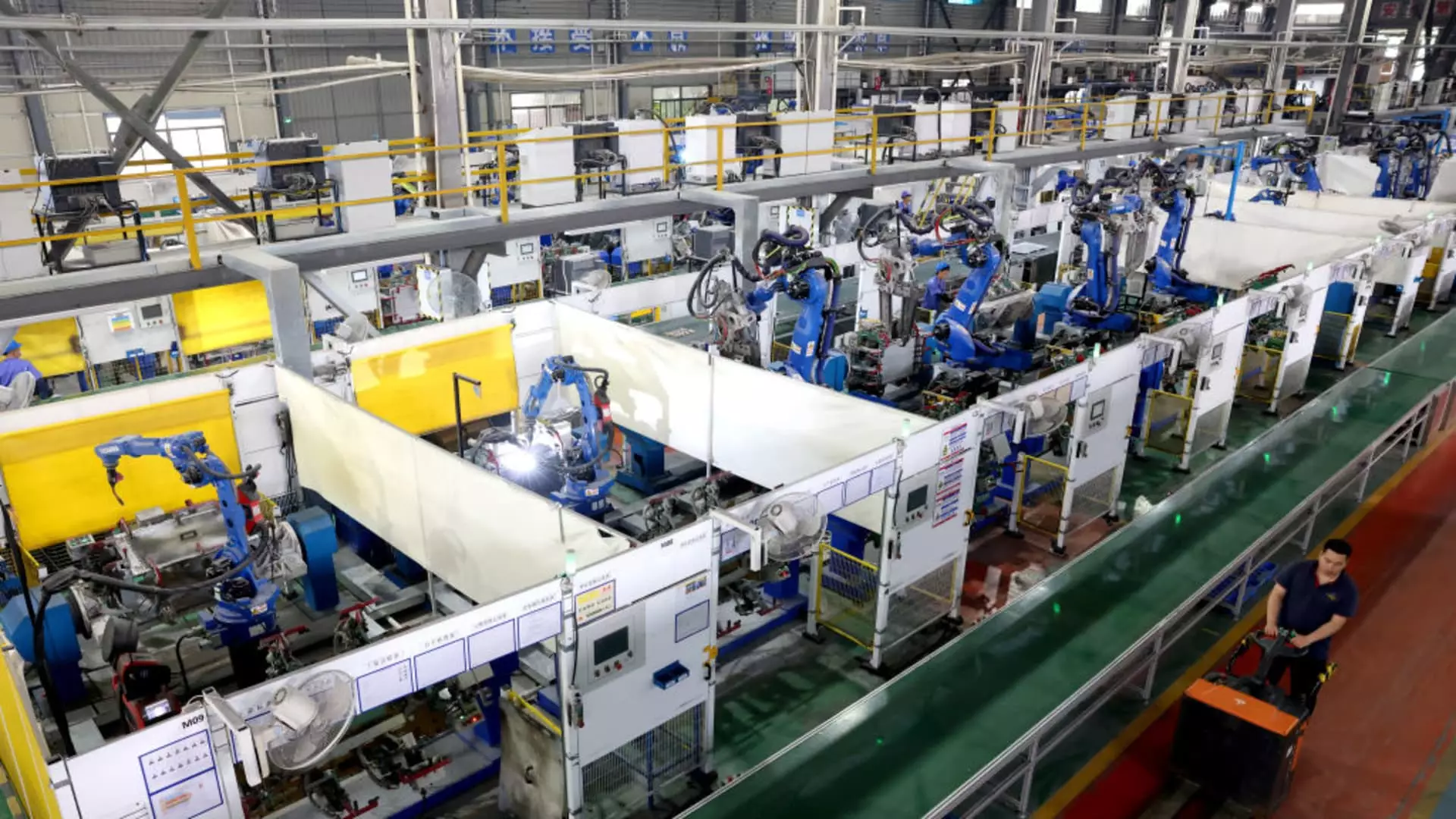European companies operating in China are encountering increasing difficulties in maintaining profitability due to a combination of slowing economic growth and overcapacity pressures. According to a recent survey conducted by the EU Chamber of Commerce in China, businesses in the country are facing challenges such as delays in payment, particularly from state-owned enterprises. These delays are being used by companies to obtain de facto loans, especially from small and medium-sized enterprises.
The slowdown in China’s growth in recent years, compounded by geopolitical tensions, has had a significant impact on European companies operating in the country. The real estate sector, which has close ties to local government finances, has experienced a slump that has dragged down the overall economy. Only 30% of respondents in the survey reported higher profit margins in China compared to their global average, marking an eight-year low.
Trade Tensions and Industry Overcapacity
Trade tensions between China and the U.S. have escalated in recent years, leading Beijing to focus on boosting manufacturing to enhance tech self-sufficiency. This emphasis on manufacturing, coupled with modest domestic demand, has raised concerns about overproduction and its impact on profit margins. More than one-third of survey respondents observed overcapacity in their industry, with the civil engineering, construction, and automotive sectors being particularly affected.
While Chinese authorities have taken steps to attract foreign investment, there are still concerns about the regulatory environment in the country. European companies have highlighted issues such as skepticism about growth potential, increasing competitive pressure, doubts about profitability, and the need to cut costs through measures like reducing headcount and trimming marketing budgets. These challenges are exacerbated by regulatory barriers that hinder opportunities for foreign businesses.
Need for Improved Market Access and Regulatory Clarity
Despite efforts to open up the market, foreign businesses in China continue to face obstacles in certain industries. While the Chinese government periodically updates the “negative list” to allow greater foreign investment, there are calls for further improvements. The EU Chamber and other business organizations have stressed the importance of implementing measures to create a more favorable environment for foreign companies, including greater predictability and transparency in regulations.
European companies operating in China are grappling with a complex set of challenges that impact their profitability and growth prospects. As China’s economy continues to evolve and face external pressures, it will be essential for businesses to adapt to changing market conditions and navigate regulatory hurdles effectively. By addressing these challenges proactively and seeking opportunities for collaboration and innovation, European companies can strengthen their presence in China despite the existing obstacles.

